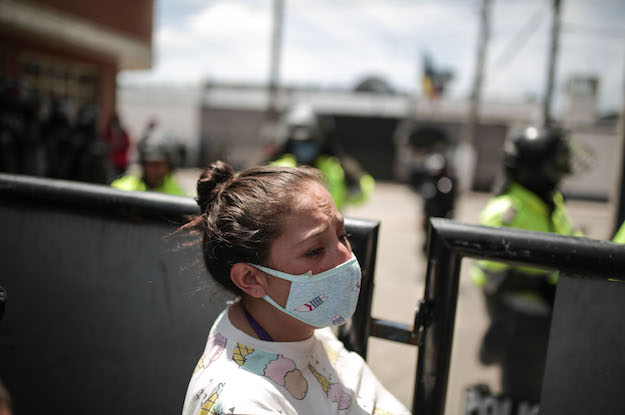The battle to regain control of Guatemala’s institutions from deeply entrenched criminal interests has reached an alarming new juncture. Two weeks ago, the head of the International Commission against Impunity in Guatemala (CICIG), a UN-led commission to investigate and prosecute high-profile organized crime and corruption, resigned in frustration.
Since January 2008, the CICIG has made progress in fighting organized crime. Under the leadership of respected Spanish jurist and expert organized crime prosecutor Carlos Castresana, the commission has successfully prosecuted dozens of corrupt high-level officials, and its work has led to the arrest of ex-military officers and the dismissal of hundreds of dirty cops.
Now, Castresana says he can do no more because Guatemalan government inaction and corruption have made his job impossible. He singled out recently named attorney general, Conrado Reyes, with alleged links to organized crime who had been undermining the commission’s investigations. Guatemala’s Constitutional Court, in a courageous move, removed Reyes, but government corruption and growing influence of organized crime remains.
The transnational nature of this organized crime has made fighting it hard. In addition to the criminal structures that date back to the country’s civil war, Guatemala is feeling the impact of the sprawling organized crime wars in Mexico. Narcotics traffickers and their enforcers, including the notorious Zetas, are moving into Guatemala. No longer relying solely on narcotics, these organizations have diversified into other criminal activities, including extortion, human trafficking and arms sales. Recent intelligence reports also suggest that corrupt Guatemalan military officers are selling weapon stores left over from the Cold War, so even as U.S. authorities cut down on arms trafficking from the U.S. into Mexico, the Guatemalans are picking up the slack.
The stakes could not be higher. These groups easily overwhelm the weak institutions of any one nation. The CICIG was a response to a fundamental lack of law enforcement infrastructure and rampant institutional corruption in Guatemala. Lacking any real ability to investigate and prosecute the most serious offenders, Guatemala agreed to the involvement of the UN-backed commission to prosecute jointly with national authorities members of powerful criminal networks that for decades have held the country’s institutions hostage. It was a courageous step for Guatemalans and one born of desperation. Ninety-eight percent of the murders in Guatemala go unsolved. The justice institutions unable to cope with common crime are simply no match for the powerful forces of organized crime.
The Court’s decision to remove the attorney general was a temporary victory against these deep-rooted criminal groups. But Guatemala’s ultimate success against organized crime will depend on the success of the CICIG.
Now that Castresana resigned, at least three things need to happen to support this groundbreaking initiative:
First, the U.S. and its allies have to develop a multilateral strategy to address the transnational nature of organized crime. There is still no effective U.S. interagency effort designed to combat what has morphed from narcotics cartels into full-blown transnational crime groups that threaten the basic stability of Latin America. Beefing up the fight against organized crime requires a coordinated regional strategy, like the joint effort between the CICIG and Guatemalan and U.S. authorities that resulted in the approval of the extradition of former Guatemalan President Alfonso Portillo on money laundering and embezzlement charges. Unless the momentum continues on cases like this, organized crime will continue to seep into the political and economic fabric of Guatemala.
Second, the UN has to appoint a brave and effective prosecutor to continue the CICIG’s work. Castresana was often viewed as an abrasive figure—a far cry from the bland UN technocrat who so often occupies these posts. Castresana saw himself as a crime fighter in a crime zone and he was exactly right. His successor must have the same attitude. The UN can’t cave in and begin to treat this as an enhanced diplomatic mission.
Finally, the Guatemalan government has to hold up its end of the deal with the UN to prosecute corruption and eliminate impunity. The Guatemalan people know they are in danger of losing their nation to bandits and are legitimately terrified at the prospect. President Colom has said he will honor the CICIG’s mandate. The Constitutional Court and many Guatemalans have shown remarkable courage but now, the Guatemalan government—the executive, legislature and the Courts—must take action to show that Guatemala can implement urgent reforms, prosecute corrupt officials and prove that it can be a partner in the vital fight against organized crime.





